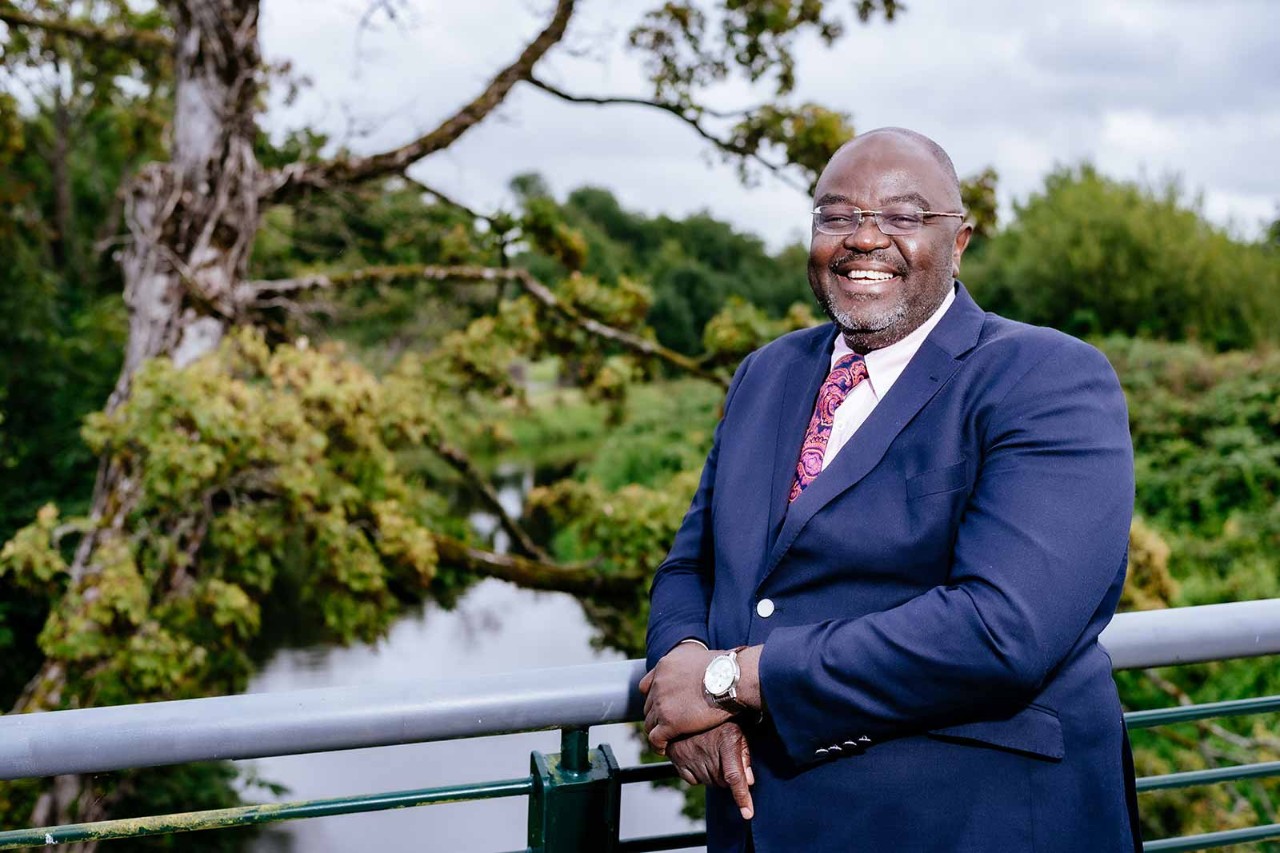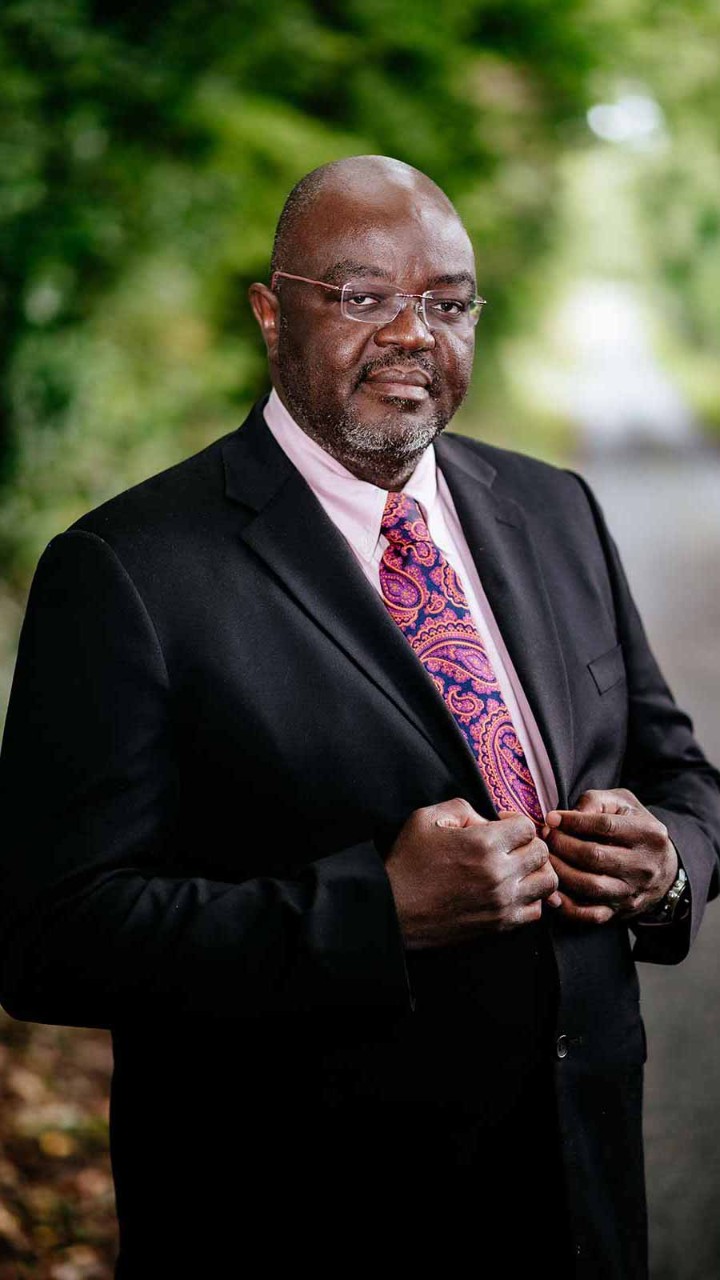
Aderemi Sotunbo FCCA believes that a knack for numbers is in his genes. Born in Nigeria, he belongs to the Ijebu tribe. ‘We are naturally good with numbers and business,’ he says. ‘When I was at university there was a joke that if you were from my tribe and you came to university to read accounting, you were just validating what was already in your DNA.’
Sotunbo himself has certainly lived up to his tribe’s reputation for being good with figures. After a long and varied career in finance, today he is CFO of the Life & Peace Institute, a Swedish non-governmental organisation (NGO) that works with partners at grassroots level within communities to try to resolve conflict and help those who are affected by it.
Its work is largely centred on five African countries: Democratic Republic of the Congo (DRC), Ethiopia, Kenya, Somalia and Sudan.
‘Donors are becoming very demanding in terms of compliance and statutory reporting’
CV
2020
CFO, Life & Peace Institute, Sweden
2017
Director of finance, Life & Peace Institute, Sweden
2014
Internal controller, Save the Children International, Democratic Republic of the Congo
2010
Country financial controller, Concern Worldwide, Burundi
2007-09
Assistant accountant, The National Maternity Hospital, Ireland. Qualified with ACCA
1992
Various banking roles at Equatorial Trust Bank (now Sterling Bank) and Fortune International Bank, Nigeria, then credit analyst, Bank of America, Ireland (2005-07)
The institute’s conflict transformation activities are funded by several influential donors, including the European Commission, the Swedish International Development Cooperation Agency, and the United States Agency for International Development. ‘We have a fantastic reputation and extensive experience in the contexts where we work,’ says Sotunbo.
Opportunities and challenges
Sotunbo leads a global finance function of 20 and oversees budgeting, financial reporting, financial planning, IT and procurement, among other responsibilities. He works remotely, having been based back in his adopted home country of Ireland since the pandemic struck in 2020.
Sotunbo describes the institute’s relationships with its donors as a ‘significant opportunity and a strength’. Nevertheless, those relationships present challenges to the finance team.
‘Donors are becoming very demanding in terms of compliance and statutory reporting,’ he says. ‘And they are pushing for better use of resources and greater benefits in terms of dollar spend, and they make sure we proactively manage our risk.’ In response to this pressure, the institute has strengthened the controls and systems in the countries where it operates.
Geopolitical events – such as the ongoing civil war in the Tigray region of Ethiopia – threaten the safety of the institute’s people on the ground, as well as their ability to do their work. For that reason, the wellbeing of staff is of paramount concern for Sotunbo. ‘Life is important,’ he says. ‘More important than money. You have to make sure that people are safe.
’Safety was a major priority during the pandemic. The outbreak of Covid-19 had a big impact on the institute, which inevitably struggled to carry out some of its planned activities. At the same time, staff had to adjust to new stresses, including learning to work remotely and combining childcare with work.
During this period, Sotunbo served on the institute’s crisis management team. ‘We met weekly to review the threats to our teams and programmes, and strategise about how to address them,’ he says.
‘Every decision that is made is seen through the lens of the risk management framework’

Life & Peace Institute in numbers
Kr60.8m (US$5.4m)
Annual income, 2021
1985
Year founded
71
Employees
50+
Partner organisations
5
Countries worked with in Africa
Sustainable future
Sotunbo’s focus is now on sustainable financing – ‘making sure that the organisation as a going concern in the near future is adequately funded’. Under his stewardship, the institute has already adopted a balanced budgeting approach – where expenditure is matched against income.
He is also developing operational plans to support the implementation of the institute’s new five-year strategy, which will require the organisation to grow in both size and funding.
In addition, Sotunbo will be closely monitoring risk management practices since this also falls within his remit. ‘Every decision that is made is seen through the lens of the risk management framework,’ he says. ‘What’s the impact of this decision? What are the operating risks? It could be a financing risk, or a strategic risk, or the risk of kidnapping or a fire breaking out. Mitigation plans are developed so that if those risks materialise, we can trigger the plans and take control of them.’
From Lagos to Longford
Although Sotunbo’s genes may have destined him for a career in finance, it was not obvious that he would end up in the NGO sector, let alone Ireland. He grew up in Lagos State in south-western Nigeria, studied accounting at Ogun State University and then entered the world of banking following graduation.
Initially, he worked in the finance function of what is now known as Sterling Bank, later holding other roles, including credit and marketing officer. While at Sterling, he qualified as an accountant with the Institute of Chartered Accountants of Nigeria. Subsequently, he worked as a senior investment executive for another Nigerian banking institution, Fortune International Bank.
Then, in 2003, he made a move that was to dramatically alter the course of his career. He’d always dreamed of gaining international experience, so he relocated to Ireland, attracted by the country’s close historical ties with Nigeria and its status as a member of the European Union. He settled in Longford, where he studied for the ACCA Qualification while doing volunteer work to help other immigrants acclimatise to life in the country.
The international nature of the ACCA Qualification appealed to Sotunbo, who anticipated that he might want to work in several different countries in the future. ‘With ACCA, you can move anywhere,’ he says. ‘And there’s no need to do conversion courses or external examinations.’ With the benefit of hindsight, he says ACCA has ‘given me a platform to accelerate my career’.
While he was studying, Sotunbo took a job as a credit analyst with Bank of America since it fitted with his previous experience. After he qualified with ACCA, however, he was ready to move back into the finance function.
Change of direction
He had a brief stint working for a commercial baker before landing a contract role as assistant accountant with the National Maternity Hospital in Dublin. For him, this was an important first step on the journey towards a career in the not-for-profit sector.
After a spell as a consultant, he took another finance role in the not-for-profit sector, this time with Irish humanitarian agency Concern Worldwide. The job took him back to Africa as country financial controller for Burundi. Next, he moved to Save the Children as internal controller, based in the Democratic Republic of the Congo, seeing the move as an opportunity to get valuable experience of working in finance for a large NGO.
When the job at the Life & Peace Institute came up, Sotunbo seized the opportunity to take a finance director role in the peace-building sector. He says: ‘Where else could one work to have an impact in bringing peace to the world and making it a better place?’
Career ambitions
Sotunbo believes that, in future, the accountancy and finance profession can help the not-for-profit sector use technology to help promote efficiency and innovation. ‘Accountants will drive the automation of business processes such as year-end accounts at the touch of a button,’ he says. ‘This will radically reduce operating costs and shift more value to final beneficiaries.’
‘Who else but the CFO has the knowledge and skills to get the highest return on donor investment?’
As for his own future, Sotunbo has the huge ambition of becoming ‘CEO of the biggest international NGO in the world’. This explains why he has continually developed himself throughout his career. As well as his accounting qualifications, he has completed business and leadership programmes at a number of leading business schools, including Harvard.
‘I’ve seen a lot of CFOs step into the CEO role,’ he explains. ‘I think we are in a very advantageous position. NGOs are all about resource management. Who else but the CFO has the knowledge and skills to get the highest return on donor investment?’
Top tips
- ‘Develop and maintain a strong personal brand. It’s important that other people know what you stand for.’
- ‘Keep learning – you must be ahead of the curve to succeed.’
- ‘Use adversity as a tool for personal growth – how can you turn difficult moments into opportunities for prosperity?’
- ‘Make integrity your identity and watchword.’


